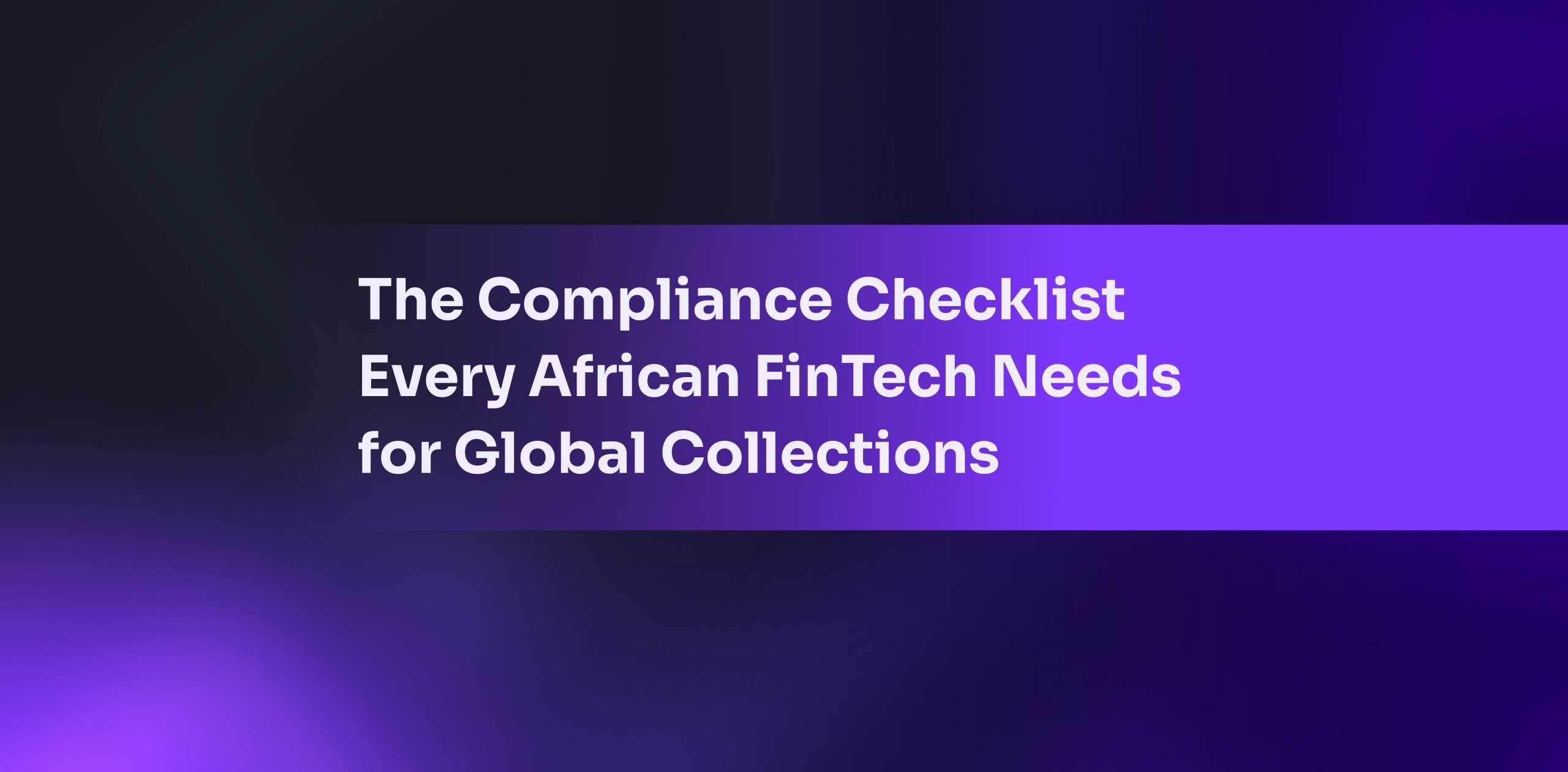African fintech compliance is becoming a make-or-break factor for businesses that collect payments internationally. Global collection accounts let you receive USD, EUR, GBP, or CAD as if you were a local business abroad but while the tech is seamless, the compliance isn’t optional.
Whether you’re a payment gateway in Nigeria, a marketplace in Kenya, or a lender in South Africa, understanding compliance requirements for global collections is critical to your growth. What compliance requirements actually apply when African fintechs set up and use global collection?
First, What Are Global Collection Accounts?
Global collection accounts are virtual accounts (often with named IBANs or local account numbers) that allow African businesses to receive international payments in foreign currencies without needing to open bank accounts in each country.
These accounts often come with:
- Local account details in the US, UK, EU, or Canada
Named account numbers linked to your business - Faster settlement and lower fees than traditional SWIFT transfers
But once you step into that global payments space, you also step into a web of international compliance rules.
African Fintech Compliance: The Global Collections Landscape.
Here’s what African fintechs need to keep in mind:
1. Know Your Business (KYB) Requirements
A key part of African fintech compliance is passing KYB checks before you can open a global collection account. This typically includes:
- Business registration documents
- Proof of identity of directors/owners (verifiable and unexpired IDs)
- Proof of address of directors/owners (utility bills, bank statement, rent agreement etc that are not older than 3 months)
- Corporate structure
- Source of funds and business model explanations
- Business URL
- Business contact details
- Why it matters: Global payment providers must verify your identity and legitimacy to comply with global anti-money laundering (AML) laws. This process is standard across Europe, North America, and Africa.
2. Beneficial Ownership Disclosure
You’ll need to disclose the Ultimate Beneficial Owners (UBOs) of your business, usually anyone with 5%+ control or influence even if they are not listed on your company registration documents. Global providers require beneficial ownership disclosure as part of African fintech compliance rules. A higher threshold may apply to certain jurisdictions and businesses.
- This includes both direct and indirect owners
- Even if your company is registered in Nigeria, Uganda or Kenya, you need to comply with international FATF guidelines
Failure to disclose UBOs accurately can result in denial of access to collection accounts.
3. AML & Transaction Monitoring Obligations
Once you’re live and collecting payments, your fintech is expected to comply with:
- Ongoing monitoring of transactions
- Flagging and reporting suspicious activities
- Keeping records of where the money came from and where it’s going
Some providers offer automated tools or dashboards for this, but it’s still your responsibility as the account holder to monitor transactions on your end.Expect providers to suspend your access or block funds if your activity appears high-risk or violates policy.
4. Data Privacy & Cross-Border Data Transfers
If your fintech processes user personal data while collecting payments , you may fall under:
- Nigeria’s NDPA
- Kenya’s Data Protection Act
- South Africa’s POPIA
- GDPR and respective countries local data protection laws
These require:
- Express user consent for data use
- Secure data storage practices
- Sometimes, restrictions on sending data overseas etc
Make sure your global collections provider is compliant and that you include privacy disclosures in your onboarding flow.
Staying Compliant with Global Collections
- Choose a provider that’s licensed, has proper partnerships and transparent.
- Do proper KYB early and update it when things change. Got new shareholders or directors? Report them.
- Understand local laws in your home country. Know when you can convert, withdraw, or hold foreign currencies and what taxes or filings apply.
- Use RegTech tools to track and report transactions. Automate what you can, but stay hands-on with high risk flags or reversals.
Stay in touch with your provider’s compliance team. If in doubt, ask. It’s better than triggering an audit or frozen account.
How to Get Started with Global Collections (The Right Way)
- Apply via a licensed global payment provider
- Submit all compliance docs during onboarding
- Set up internal transaction monitoring processes
- Ensure your FX, tax, and privacy obligations are met
- Start collecting global payments with peace of mind
Conclusion: Compliance Isn’t Just a Requirement, It’s a Superpower
For African fintechs, collecting payments in foreign currencies isn’t just about convenience, mastering African fintech compliance unlocks scale and credibility in the global market.
Ready to expand your fintech’s reach with fully compliant global collection accounts? Talk to Fincra today and start collecting payments worldwide with confidence. But with that reach comes responsibility.
Link to FATF Recommendations
By understanding and meeting your compliance obligations from KYB and AML to FX and data laws, you don’t just stay legal. You stay ahead. Because in the world of global collections, compliance is the key to unlocking scale.



